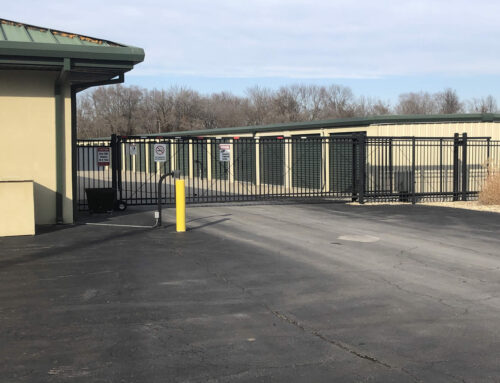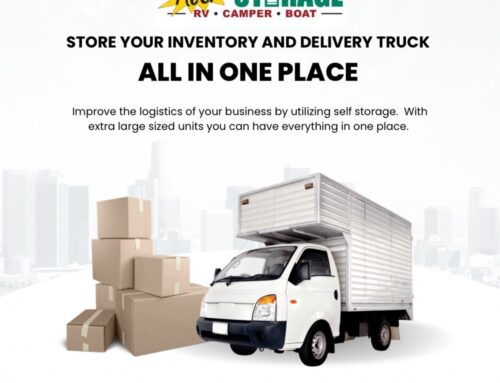The relevance of self-storage to student life is profound. It is no secret that student accommodation tends to be limited in terms of space, and more often than not, students find themselves with more belongings than their rooms can comfortably hold. This is where self-storage comes into play. With the flexibility and security it offers, students can store their non-essential items, thus decluttering their living space and creating a more conducive environment for both living and studying.
Furthermore, self-storage units can prove invaluable during the summer break. Many students go home during this period, leaving them with the dilemma of what to do with their belongings. Hauling everything back home can be impractical and expensive, especially for international students. A self-storage unit provides a convenient and cost-effective solution. Students can store their items securely until they return for the next academic year.
The Benefits of Self-Storage for Students
The first notable benefit of self-storage for students is the significant space-saving potential it offers. Most dormitory rooms and student apartments are notoriously small, often requiring students to make hard decisions about what to bring and what to leave behind. With self-storage, however, these difficult choices can be avoided. Students can store their non-essential items, such as seasonal clothing, excess books, and furniture, in a self-storage unit, leaving their living spaces uncluttered and more conducive for study and relaxation. This freedom to maximize limited living space is a significant advantage of the self-storage option.
Secondly, self-storage units provide an excellent level of security for students’ valuable belongings. Most self-storage facilities are equipped with advanced security measures, including 24-hour surveillance, gated access, and individual lock and key for each unit. These security precautions ensure that students’ precious items are kept safe and secure, providing peace of mind that is well worth the cost.
In terms of flexibility, self-storage offers students easy and convenient access to their stored belongings. Unlike other storage options, self-storage facilities typically allow for 24/7 access, meaning students can retrieve or store items at their convenience. This level of flexibility is particularly beneficial during busy academic periods or unexpected situations when certain items may be needed at short notice.
Finally, self-storage is a highly cost-effective storage solution for students. When compared to other storage options such as renting additional living space, the cost of a self-storage unit is significantly lower. Furthermore, most self-storage facilities offer flexible rental terms, with options for short-term or long-term storage. This flexibility allows students to only pay for the storage they need, further enhancing the cost-effectiveness of the self-storage option.
Choosing the Right Self-Storage
The first step in making the most out of self-storage is choosing the right one. Size is a crucial factor to consider. As a student, you need to determine the appropriate storage unit size based on the quantity and size of items you plan to store. Keep in mind that an overly large unit will result in wasted space and unnecessary expenses, while a unit that’s too small may not accommodate all your belongings.
Location is another important consideration. The proximity of the storage facility to your campus or residence can greatly affect its convenience. A facility within a short distance can save you time and travel costs, particularly if you’ll need to access your stored items frequently.
Furthermore, you must understand the different security options offered by storage facilities. The security of your belongings is paramount, especially if you plan to store valuable items. Look for facilities that offer advanced security measures such as 24/7 surveillance, individual unit alarms, and access controls.
Cost is often a critical concern for students. While self-storage is a cost-effective solution, the prices can vary widely depending on the size, location, and features of the unit. It’s important to set a budget and compare different facilities and their pricing structures to get the best value. Take into account any potential discounts or special offers for students.
Lastly, consider the importance of climate control, especially if you plan to store sensitive items such as electronics, books, or furniture. Climate-controlled units maintain a constant temperature and humidity level, preventing damage from fluctuations in the weather. While these units may cost more, they can protect your belongings from long-term damage, making them a worthwhile investment.
Maximizing Your Self-Storage Space
One of the key aspects to making the most out of your self-storage space is organization. Efficient arrangement of your items can significantly increase the capacity of your unit, allowing for additional items to be stored. Start by placing large, heavy items at the base, forming a sturdy foundation. Ideally, these should be items you won’t need to access frequently. From there, stack lighter items on top, ensuring they’re secure and won’t be damaged by any shifting. Utilize boxes of similar sizes to create uniform stacks, increasing stability. Label boxes clearly on all sides for easy identification and retrieval. Also, leave a small aisle for easy access to items at the back of the unit.
Packing your belongings properly is another crucial aspect in maximizing your self-storage space. Use sturdy, high-quality boxes that can withstand stacking without collapsing. Fill boxes to capacity, but be careful not to make them too heavy to lift. Use bubble wrap or packing paper to fill empty spaces in the boxes, preventing items from moving around. Break down large items, such as furniture, if possible. Always remember to use covers for furniture and mattresses to protect them from dust and potential damage.
Common Items Students Store
The transition into student life often comes with the challenge of limited living space. Thankfully, self-storage units provide a practical solution, acting as an extended closet or garage. Let’s delve into some of the common items that students find useful to store.
Firstly, textbooks and school supplies can take up significant amounts of space, especially for those pursuing extensive courses. Storing these items in your self-storage unit during semester breaks can free up room and reduce clutter in your accommodation. It’s advisable to pack these items in sturdy boxes, label them clearly, and ensure they’re not too heavy for easy retrieval.
Next, seasonal clothing and gear. As students, you may have a range of clothing items and gear for different seasons, from bulky winter coats to summer swimwear or even sports equipment. Keeping these items in your self-storage unit during off-seasons helps optimize your living space and ensures your most needed items are always accessible. Remember to store these items in airtight containers to protect them from potential damage.
Furniture and electronics are other common items students store. Perhaps you’ve acquired some pieces that don’t fit in your current living arrangement or you’re transitioning between accommodations. Self-storage units can keep your valuable furniture and electronics safe and secure. When storing these items, it’s crucial to use protective coverings like bubble wrap or furniture covers to prevent scratches or damage.
Lastly, vehicles such as bikes or cars may need to be stored, particularly during holiday breaks or study abroad semesters. Self-storage units often offer vehicle storage options that ensure your ride is safe and protected while you’re away. By strategically packing and storing these items, your self-storage unit can become an integral part of your student life, providing much-needed space and security for your belongings.
Conclusion
In conclusion, self-storage units offer a multitude of benefits and uses for students. They not only afford extra space for storing textbooks, school supplies, seasonal attire, furniture, electronics, and even vehicles but also provide a safe and secure place for these items. By taking prudent measures such as careful packing, using sturdy boxes, and protecting items with appropriate coverings, students can maximize the utility of their storage units. The adaptability of self-storage units allows students to cater to their individual needs, making it a versatile solution to the issue of space constraints in student life.
The beauty of self-storage lies in its flexibility. Whether it’s for short-term storage during the summer holidays or long-term storage of items not immediately needed, self-storage units can accommodate varying needs. When studying away from home, the convenience of having a dedicated space to store personal belongings cannot be overstated. Indeed, self-storage units can play a defining role in enhancing and facilitating student life. They act as an extension of a student’s living space, providing an organized and accessible avenue for students to manage their belongings. Therefore, it is highly recommended for students to consider self-storage as a viable and cost-effective solution to their storage problems. By taking advantage of self-storage units, students can focus on their studies and enjoy their college experience without the constant worry of clutter and space management.


